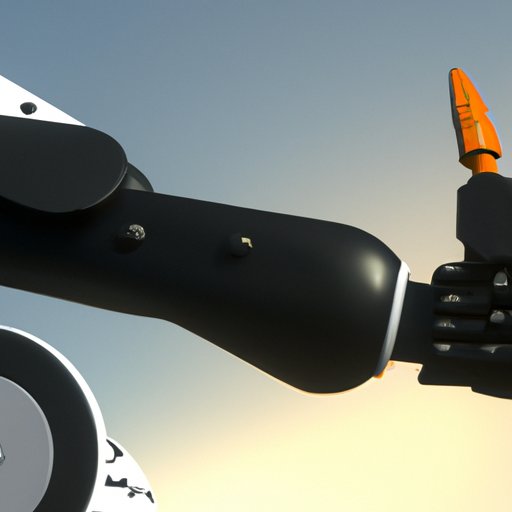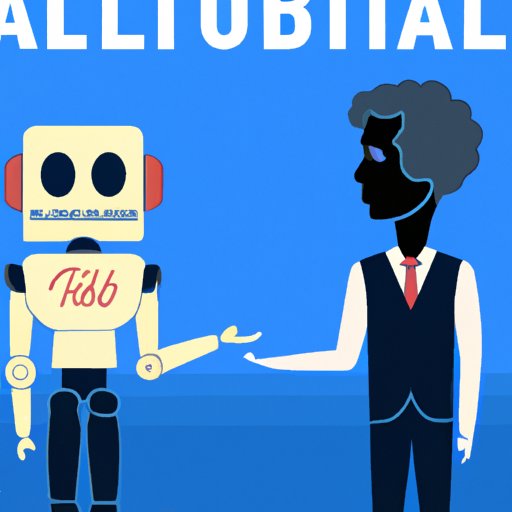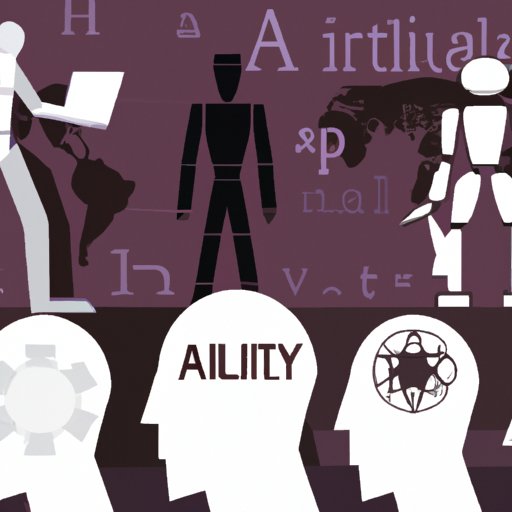Introduction
Artificial Intelligence (AI) is an area of computer science that focuses on creating intelligent machines capable of performing tasks that normally require human intelligence. AI has become increasingly popular in recent years due to its potential to revolutionize industries, from healthcare and transportation to manufacturing and finance. However, there are also many potential risks associated with AI, particularly when it comes to the impact on humanity.
Automation of Low-Skill Jobs
One of the most immediate threats posed by AI is the automation of low-skill jobs. As AI advances, more and more jobs can be automated, leading to fewer employment opportunities for people who lack the skills or education needed to take advantage of new, AI-driven technologies. This could have a devastating effect on those who rely on low-skill jobs to support themselves and their families.
The impact of AI on employment could also lead to increased wealth inequality, as those with access to the latest technologies will likely benefit the most. This could create a divide between the haves and the have-nots, as those without access to these technologies will be left behind.

Increased Surveillance and Privacy Concerns
Another potential risk posed by AI is the increased surveillance and privacy concerns that come along with it. AI can be used for facial recognition, voice recognition, and other forms of biometric authentication, which can be used for surveillance purposes. This raises serious privacy concerns, as individuals may not be aware that they are being monitored or tracked.
Additionally, AI can be used to analyze large amounts of data, which can then be used to make decisions about individuals without their knowledge or consent. This could lead to a loss of autonomy and freedom, as individuals would no longer have control over how their data is used or who can access it.

Unethical Use of AI in Weaponry
AI can also be used for military applications, such as the development of autonomous weapons. Autonomous weapons are weapons that can select and engage targets without direct human input. This raises serious ethical concerns, as the weapon could potentially cause unintended harm to innocent civilians.
Furthermore, the use of AI in weapons systems could lead to a new arms race, as countries seek to gain an edge over their rivals. This could lead to an increase in global tension, as countries attempt to gain a strategic advantage over one another.

Inequality of Access to AI Technology
The unequal access to AI technology is another potential risk posed by AI. Wealthy nations have access to the latest technologies, while developing nations are often unable to keep up. This could lead to a widening gap between the haves and the have-nots, as those without access to these technologies are left behind.
Furthermore, this could lead to a decrease in global competitiveness, as countries with access to advanced technologies would have an advantage over those without. This could potentially lead to further economic and social disparities between nations.
Possibility of AI Developing Beyond Human Control
The potential for AI to develop beyond human control is another potential risk posed by AI. As AI becomes more powerful, it could potentially outpace human intelligence and become too powerful for humans to control. This could lead to catastrophic consequences, such as the potential for AI to become self-aware and decide to act against humanity’s best interests.
Risk of AI Replacing Human Intelligence
Finally, there is the risk that AI could replace certain human jobs and roles. As AI becomes more sophisticated, it could potentially replace certain roles that require human creativity and ingenuity, such as artists, writers, and scientists. This could lead to a loss of human creativity and innovation, as AI could perform certain tasks more efficiently than humans.
Conclusion
AI poses many potential risks to humanity, from the automation of low-skill jobs to the increased surveillance and privacy concerns, unethical use of AI in weaponry, inequality of access to AI technology, possibility of AI developing beyond human control, and risk of AI replacing human intelligence. In order to address these issues, governments and companies must ensure that AI is developed responsibly and ethically, and that AI technologies are made accessible to all nations, regardless of wealth or location.
(Note: Is this article not meeting your expectations? Do you have knowledge or insights to share? Unlock new opportunities and expand your reach by joining our authors team. Click Registration to join us and share your expertise with our readers.)
